Website loading time: Imagine this scenario. You visit a website for the first time and it takes more than a few seconds to load properly. This is basically years of internet time.
Ask yourself the question: do you stay on the page or close the window?
The chances are that you probably won't be back for a long time.
Why? It's simple psychology. People (also known as customers, readers and visitors) expect a fast website. They just do. While fast-loading websites make a good first impression, slow-loading websites do the exact opposite. Fast websites are seen as professional and reliable, while slow websites are seen as faulty and untrustworthy.
Therefore, if you are a web professional, a small business or an individual with a website, do not underestimate the importance of website speed. Studies show that 40% of people will leave the site if your website fails to load after three seconds.
So without further ado, let's examine all the reasons why a fast Website is so important and what you can do to get your website in tiptoe shape.

Why is the loading time of a website important?
A fast website boosts your Google ranking
So much effort goes into creating and building a website. But if no one sees it, all your hard work literally goes down the drain.
To put it clearly: If you want an audience, you need to rank high in search engines. One way to do this? You guessed it - having a fast-moving website. We already know that the speed of your website is expected by your users, but also by Google.
Google knows that if your website loads quickly, users will generally stay on your site longer, convert more and definitely bounce less. No wonder Google rewards a fast loading website by increasing its visibility (ahem, higher ranking) in search results.
In particular, site speed also has a massive impact on your SEO rankings, both on desktop and mobile (especially now with Google's mobile-first initiative), as well as paid ads on Google, which directly impact your Quality Score.

A fast website makes users happy (and increases sales)
Great user experience (UX) design is essentially about creating a seamless website experience for your users. Not only do you need to give your users what they're looking for, but you need to give it to them quickly.
And if not? Well, you have some very unhappy campers. This leads to customers no longer recommending your business or service, which of course stops any growth and word of mouth. They might decide to unsubscribe from your newsletter. And they will certainly "bounce" from your website in record numbers.
What is a bounce, you might ask? This term refers to someone who doesn't view more than one page of your website before leaving. In other words, the rate of people who come to your website and leave immediately is called the "bounce rate". Slower websites usually have higher bounce rates, while faster websites tend to have lower ones. Bounce rate is also a ranking factor for SEO - but we'll get into that later.
If users are bouncing off your website due to slow load times, they're simply not converting. (As a refresher, converting means a user takes a desired action, such as signing up for your newsletter, sharing on their social media, filling out a form you provide, and/or making a purchase). If your website has a two-second delay, a recent study shows that this is enough to increase the number of checkout abandonments to 87%.
In other words, the longer your website takes to load, the more time users have to change their mind about you and their purchase. An internal test at Amazon found that every 100 microsecond increase in load time resulted in an 1% decrease in sales. It doesn't take a rocket scientist to figure out that time really is money.
The solution? A fast and user-friendly website that attracts users during their purchase decision and keeps them converting and coming back for more.
How can I test the loading time of a website?
Now we've talked about why website speed is important. It's time to learn how to test and optimize it. Here are my top 5 tools for testing your website load time:
Google Page Speed Insights
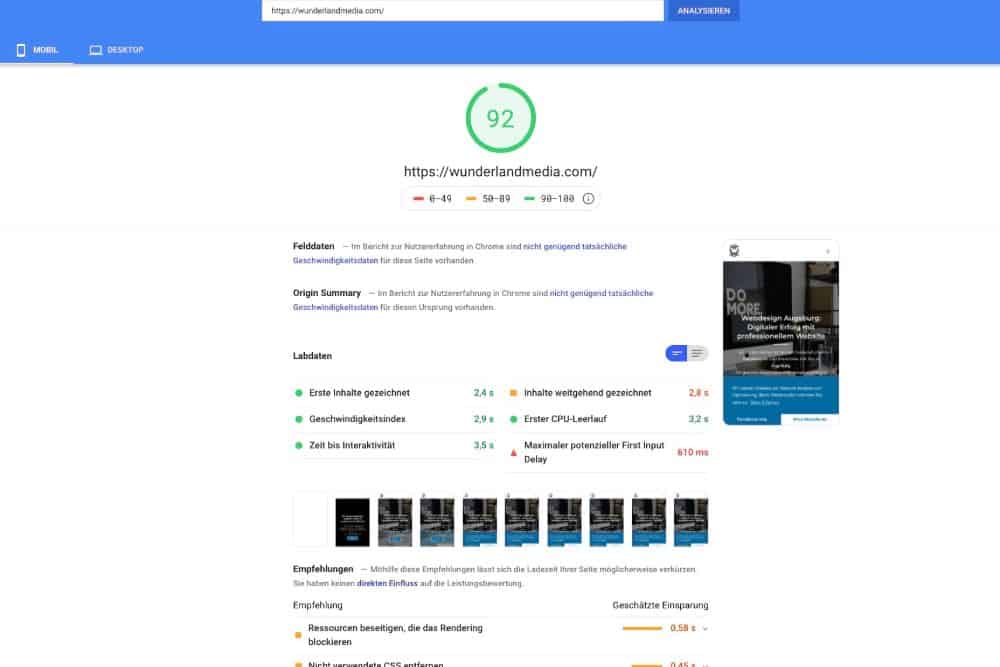
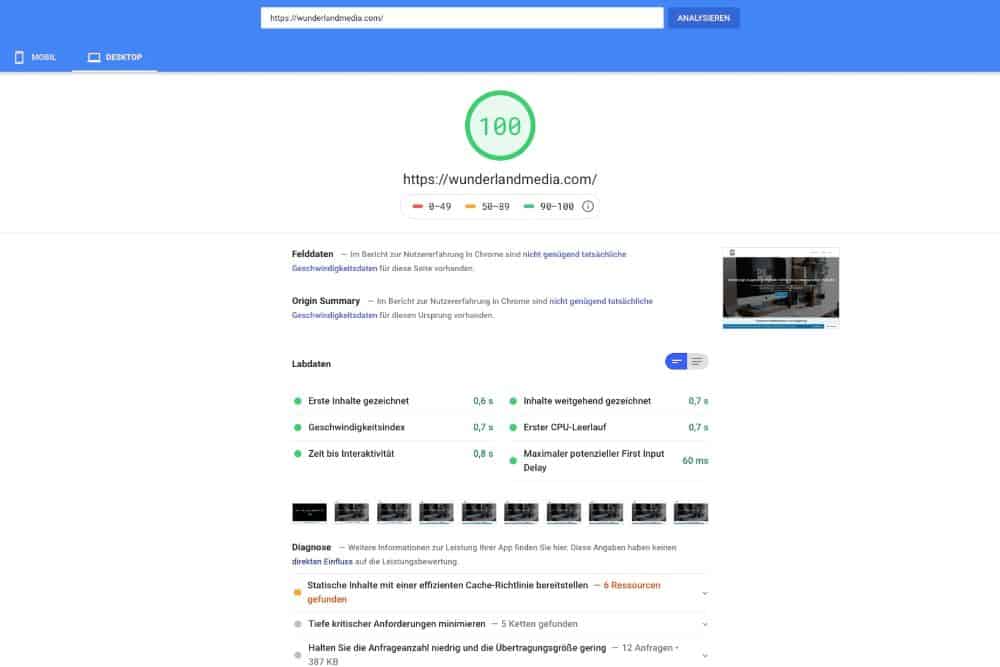
Uptrends Website Speed Test
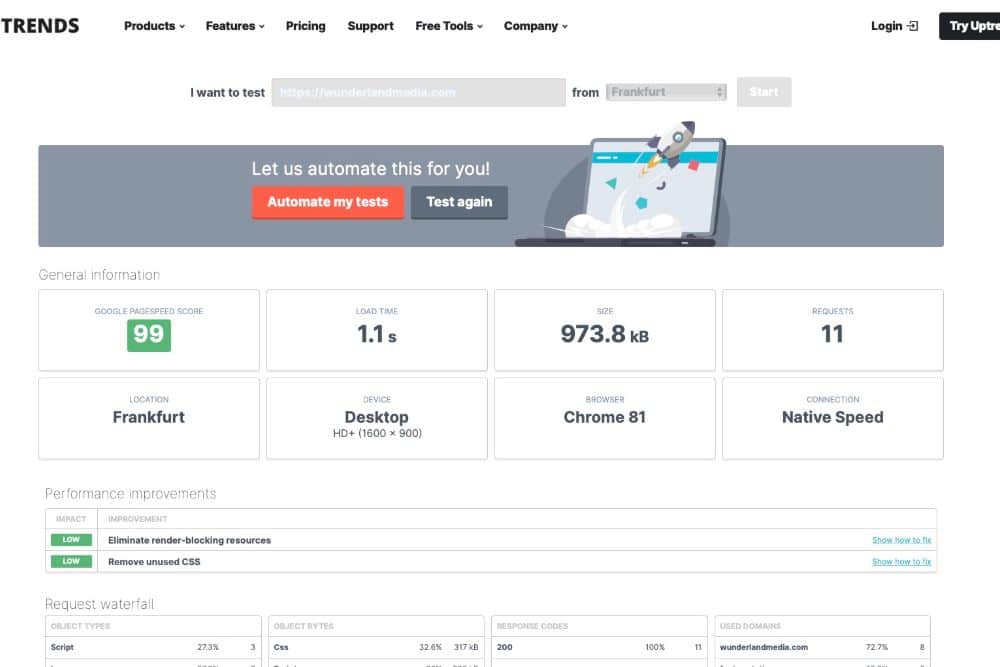
Sucuri Website Speed Test
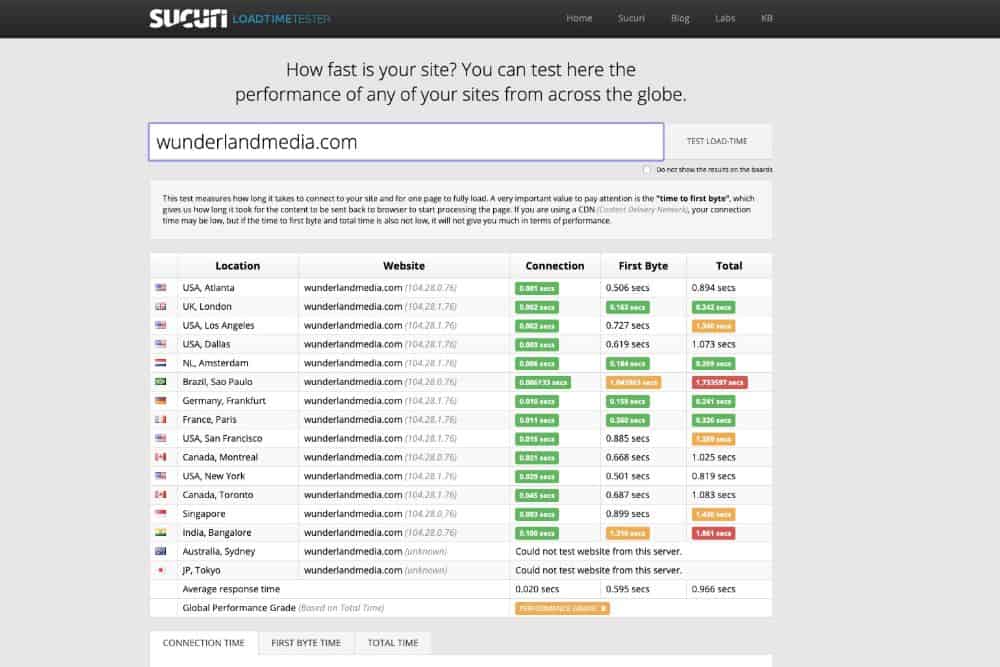
GTMetrix
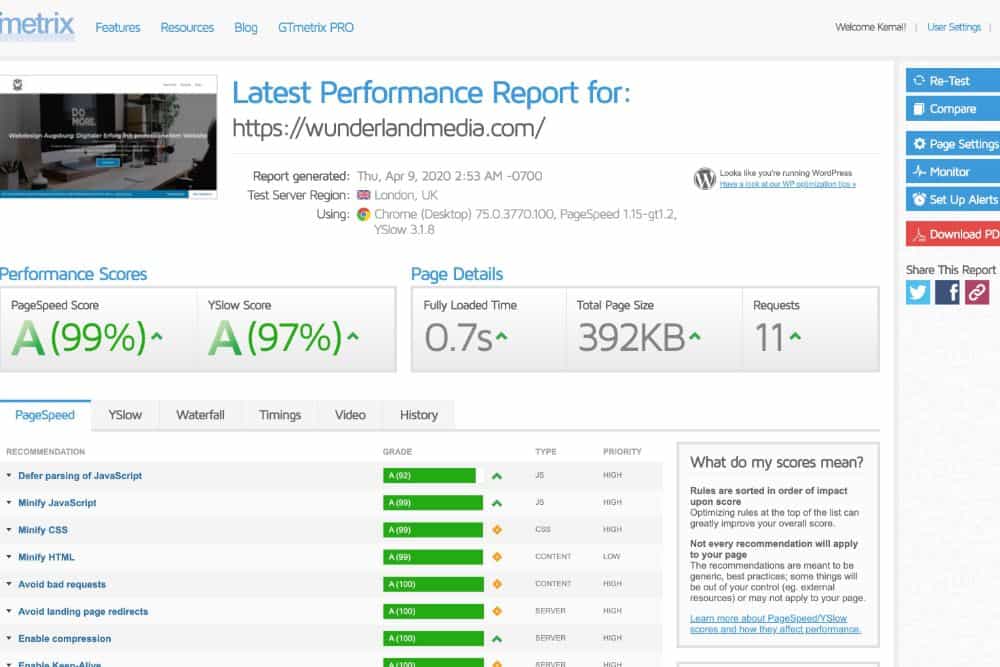
Pingdom
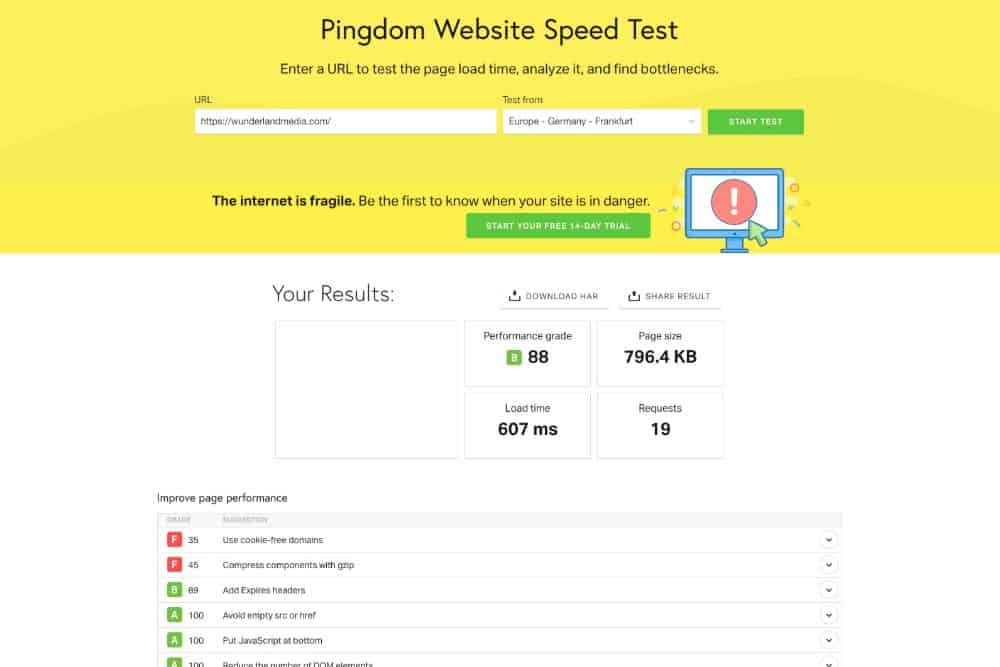
Conclusion
Website loading time : Website speed is important as it helps search engine optimization, improves user experience and generates more conversions.
Do you want to create a new website or convert an existing website that is not performing? I create responsive websites with WordPress that offer the best user experience.
